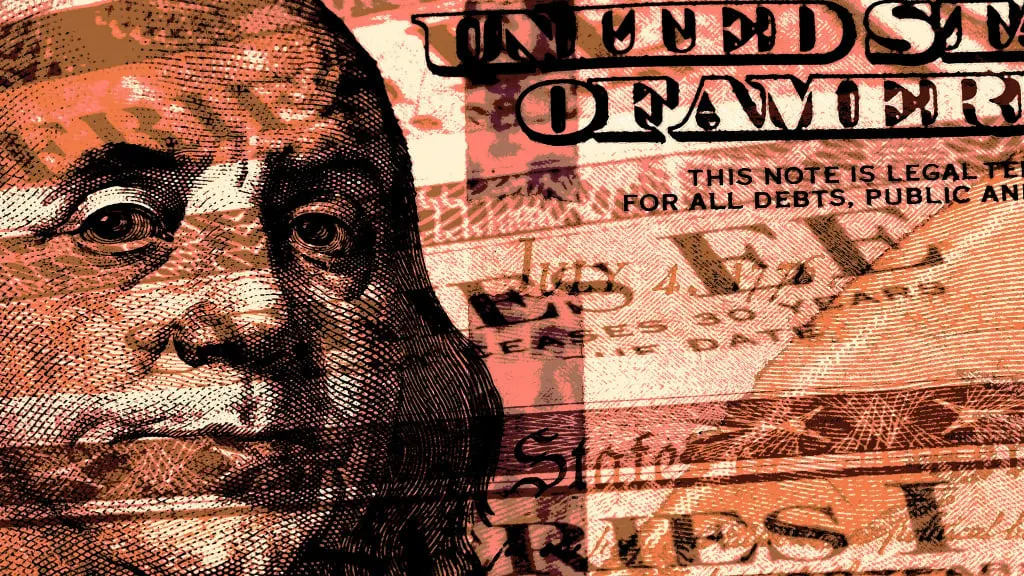The United States is barreling toward a date that could have historic consequences for global markets, running the risk of its first-ever debt default. It's a potential black swan event that could have an outsized impact on Bitcoin, Ethereum, and the rest of the crypto market.
U.S. Treasury Secretary Janet Yellen warned weeks ago that the government would soon run out of funds if the debt ceiling isn’t suspended or raised—possibly as early as June 1. If lawmakers remain deadlocked and can’t come to an agreement on spending, Washington won’t be able to pay its bills, she said.
Similar standoffs over the debt ceiling have rattled markets in the past, like a prolonged disagreement over the debt ceiling that sent the S&P 500 tumbling 16% in 2011, startling investors before a resolution was reached.
This time around, Wall Street has yawned. The S&P 500 is down less than 1% since Yellen issued her sobering remarks on May 1. However, Bitcoin has fallen more than 7% and Ethereum is down nearly 3% during the same period, according to CoinGecko.
America's “X-date”
Typically, debt ceiling debacles create more noise than market-moving news, Amberdata’s Director of Derivatives Greg Magadini told Decrypt—but he acknowledged that a U.S. debt default is far from off the table.
“It feels like a pretty intense game of chicken right now,” he said. “And given how crazy things have gone in the past couple of years, I think anything is possible.”
In the event that the government defaults on its debts, risk assets like stocks and crypto would face short-term pain, Magadini said. He explained that’s because a drop in the quality of government-backed debt would likely raise borrowing costs, counterintuitively increasing its yield and strengthening the dollar compared to other assets.
Similarly, the dollar could strengthen during a U.S. default as American traders tend to onshore their dollars—swapping foreign currencies and assets for the greenback—during risk-off events, CoinShares’ Head of Research James Butterfill told Decrypt.
“Technically speaking, the dollar should sell off in the event of a default, but it won't because people tend to onshore their dollars in periods of market stress,” he said. “The dollar might actually strengthen, perversely, because people are getting worried, and that actually won’t be so great for Bitcoin.”
Butterfill envisions the dollar will strengthen and Bitcoin will slide as the U.S. approaches what the White House has described as America's “X-date,” the official date at which the government can no longer pay its bills.
“This is a really complicated scenario,” Butterfill said, noting he doesn’t think a default is likely. “It’s not that obvious what exactly will happen.”
Bitcoin May Bounce
Bitcoin and Ethereum could react differently in the event of a default, Amberdata’s Magadini said. Bitcoin may bounce alongside gold after an initial slide—as a check on government-issued currency—while Ethereum would likely remain depressed alongside tech stocks, he said.
The sentiment was echoed by Genesis’ Co-Head of Trading Gordon Grant, who told Decrypt that Bitcoin has more upside than Ethereum if the government can no longer meet its debt obligations, but both coins would face pressure initially.
“Maybe there's an initial wick down, as risk assets get absolutely trounced, because the stock market is going to get decimated,” he said. “But Bitcoin is probably going higher.”
For Ethereum, Grant said that the second largest crypto by market cap is often tied to indexes tracking tech stocks like the NASDAQ, making it likely to underperform compared to Bitcoin if a default takes place.
“It doesn't matter whether I think that that's a fair comparison,” he said, noting that that’s how certain models trade the relationship between things like the NASDAQ and Ethereum. “So, we would tend to expect underperformance of Ethereum.”
SVB and Sausage
As an example of how crypto has performed during recent risk-off events, Grant pointed to Bitcoin’s outsized gains compared to Ethereum in the wake of several bank collapses in March, including Silicon Valley Bank. However, he noted that there’s zero data to suggest how cryptocurrencies could react if the government defaults for the first time in history.
Both Grant and Magadini highlighted increased activity in the options market for Bitcoin as a potential default draws closer, saying it suggests that traders—mostly institutional ones—are betting the coin will see increased volatility.
At the end of the day, Grant said he’s confident that lawmakers will exhaust their differences on Capitol Hill and reach an agreement like they always have. But, pointing to the logic of Bloomberg’s Tom Keene, Grant said the bigger question is whether events like these become more common in an ever-more-polarized political climate, and if they’ll ever go away.
“We can ruminate and pontificate, but the real story is this phenomenon of the US government, as a debtor nation, bumping up against a debt ceiling,” Grant said, adding it’s become “how the sausage gets made in the 21st century.”





